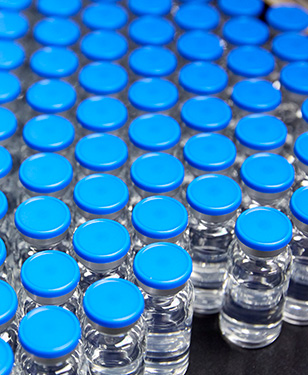Disease Areas
Postpartum Depression
Postpartum Depression
Postpartum depression (PPD) symptoms are estimated to affect approximately one in eight women who have given birth in the U.S.1 Women experiencing symptoms of PPD may have intense feelings of sadness or anxiety that make it difficult to do their daily tasks or to bond with their baby. These symptoms can start during pregnancy or after a woman gives birth.2,3
According to the Centers for Disease Control and Prevention, mental health conditions are the leading cause of maternal mortality4 with PPD among the most common complications during and after pregnancy.1
Too often women living with postpartum depression ignore or hide symptoms due to stigma, shame or fear. In many cases, symptoms are dismissed as the “baby blues” which are common feelings of sadness due to hormonal changes that usually resolve within the first two weeks after giving birth.2 Symptoms of PPD are more intense, can last longer, and can be serious if not treated.
Our Approach
In the United States, it is estimated that approximately 500,000 women annually are affected by postpartum depression.1 We are working to advance screening and treatment rates for postpartum depression and pioneer much-needed solutions to improve maternal mental health outcomes.
Innovative Research
We are focused on revolutionizing the standard of care for women with postpartum depression and are exploring opportunities where great unmet need remains to change how maternal mental health conditions are treated. We also aim to address the social stigmas of postpartum depression by working with the community through dialogue, raising awareness and creating understanding.
Postpartum depression: Caitlin's story
After Caitlin had her first baby, she thought the experience she was having was the “baby blues.” She felt overwhelmed and disconnected from her son and didn’t understand why.
Mental Health Birth Planning: Shari’s Story
After the birth of her first daughter, Shari experienced postpartum depression. Before the birth of her second daughter, she made a mental health plan to help set herself up for success. Shari is sharing her story in hopes of helping other women advocate for themselves.
Facts and Figures
500k
In the United States, an estimated 1 in 8 mothers experience symptoms of postpartum depression, which equates to approximately 500,000 cases annually.1
50%
Approximately half of all PPD cases may go undiagnosed without appropriate screening.5,6
2x
Rates of postpartum depression have increased significantly, doubling from 2010 to 2021. 7
- Bauman BL, et al. Morbidity and Mortality Weekly Report, 2020;69(19):575-581
https://www.acog.org/womens-health/faqs/postpartum-depression
Psychiatry.org - What is Perinatal Depression (formerly Postpartum)?
CDC Archive: Four in 5 pregnancy-related deaths in the US are preventable
- Georgiopoulos AM et al. J Fam Pract. 2001;50(2):117-122.
- Evins GG et al. Am J Obstet Gynecol. 2000;182(5):1080-1082
- Khadka, N et al. JAMA Network Open. 2024;7(11):e2446486


